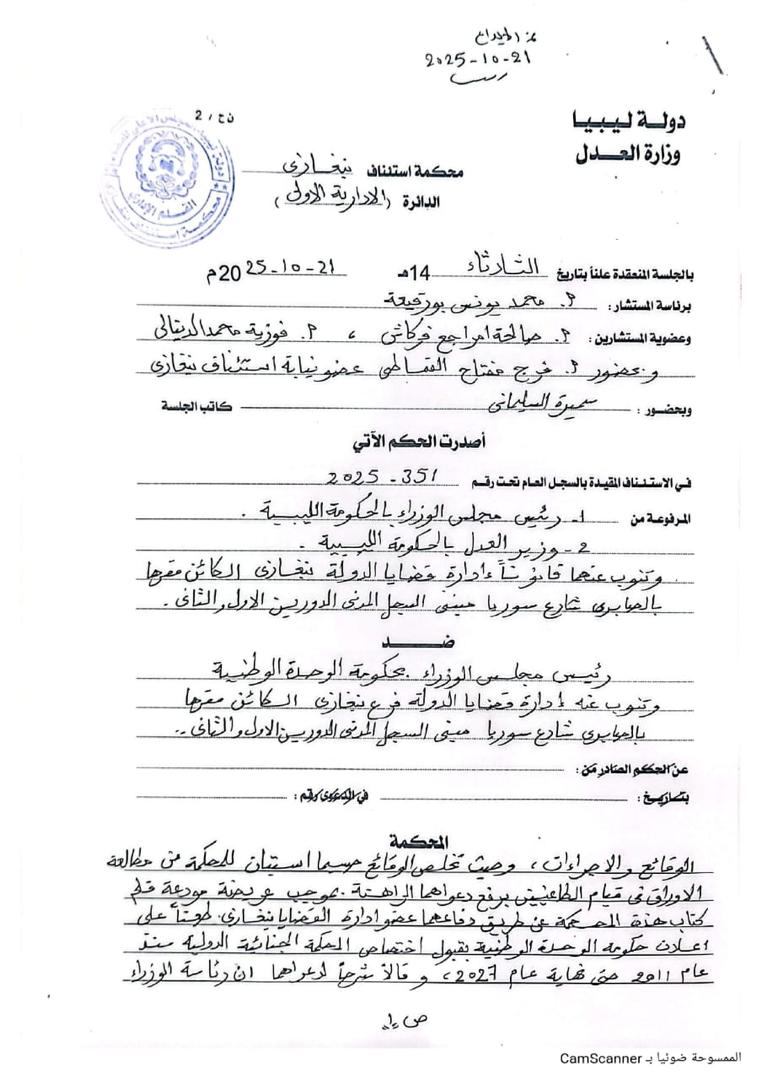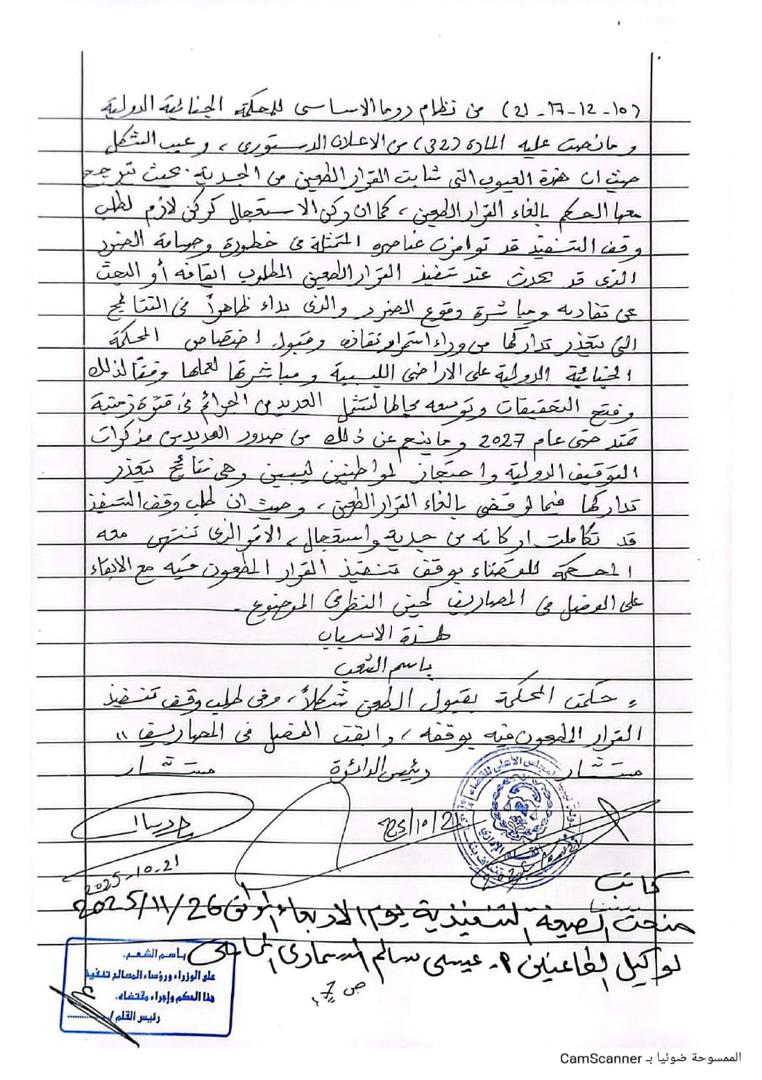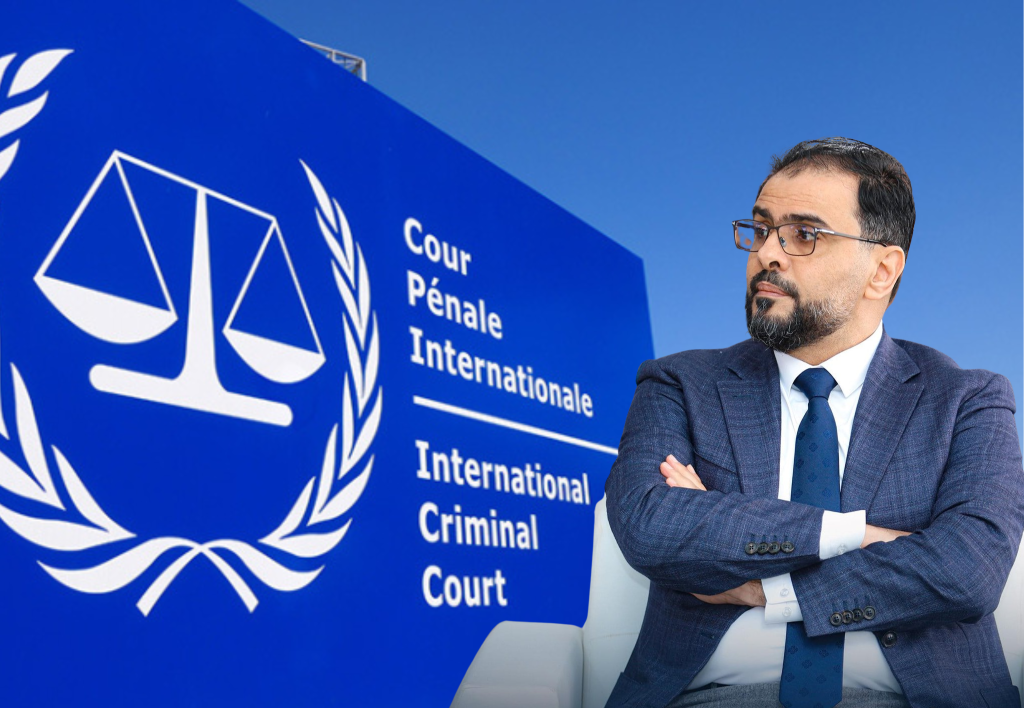Benghazi – The Libyan judiciary has issued a decisive ruling blocking attempts to transfer national legal jurisdiction to the International Criminal Court (ICC), marking a significant escalation in the struggle over Libya’s sovereignty.
The First Administrative Circuit of the Benghazi Court of Appeals granted the “executive formula” today, November 26, effectively enforcing a judgment that suspends the decision of the Tripoli-based Government of National Unity (GNU) to accept the jurisdiction of foreign judicial bodies over Libyan criminal matters.
Court Ruling on Case 351/2025
The ruling stems from an administrative appeal (Case No. 351/2025) filed by the Libyan Government led by Prime Minister Dr. Osama Hammad. The appeal challenged the authority of the GNU—referred to by the Hammad administration as the “outgoing government”—to cede the mandate of the Libyan judiciary to the ICC.
The court originally ruled on October 21, 2025, to suspend the GNU’s decision. With today’s granting of the executive formula, the ruling is now final and enforceable, legally nullifying the GNU’s acceptance of ICC intervention.
Prime Minister Hammad: “High Treason”
In an official correspondence addressed to the Supreme Judicial Council and the House of Representatives, Prime Minister Hammad condemned the recent briefing by the ICC Prosecutor to the UN Security Council on November 25. Hammad described the Prosecutor’s insistence on intervention as a “clear violation of the Rome Statute” and an infringement on Libyan sovereignty.
“The outgoing government possesses no legal or constitutional authority to waive national judicial jurisdiction or transfer it to any international entity,” Prime Minister Hammad stated. “Proceeding with such an action is an encroachment on the powers of the Libyan judiciary and a usurpation of the Attorney General’s authority. It constitutes a crime amounting to high treason.”
Legal Precedent and The Rome Statute
The Libyan Government’s statement emphasized the “Principle of Complementarity” enshrined in the Rome Statute, which dictates that the ICC functions only when national legal systems are unable or unwilling to investigate.
The government cited a 2014 ICC precedent regarding the inadmissibility of a case against a Libyan defendant, arguing that the national judiciary has already proven its capacity and willingness to conduct independent trials.
Deepening Crisis
The Hammad administration warned that the ICC Prosecutor’s briefing and the actions of the rival government in Tripoli are deepening the political crisis in Libya. The government has called on judicial and legislative bodies to take urgent measures to protect the independence of the Libyan judiciary from what it terms “unacceptable foreign interference.”
Key Dates in the Litigation:
July 28, 2025: South Benghazi Court issues an urgent order stopping the implementation of the GNU’s declaration of ICC jurisdiction.
October 21, 2025: Benghazi Court of Appeals (Administrative Circuit) rules to suspend the GNU decision in Case 351/2025.
November 25, 2025: ICC Prosecutor briefs the UN Security Council, triggering a backlash from the Hammad government.
November 26, 2025: The Court grants the executive formula, making the judgment enforceable.


